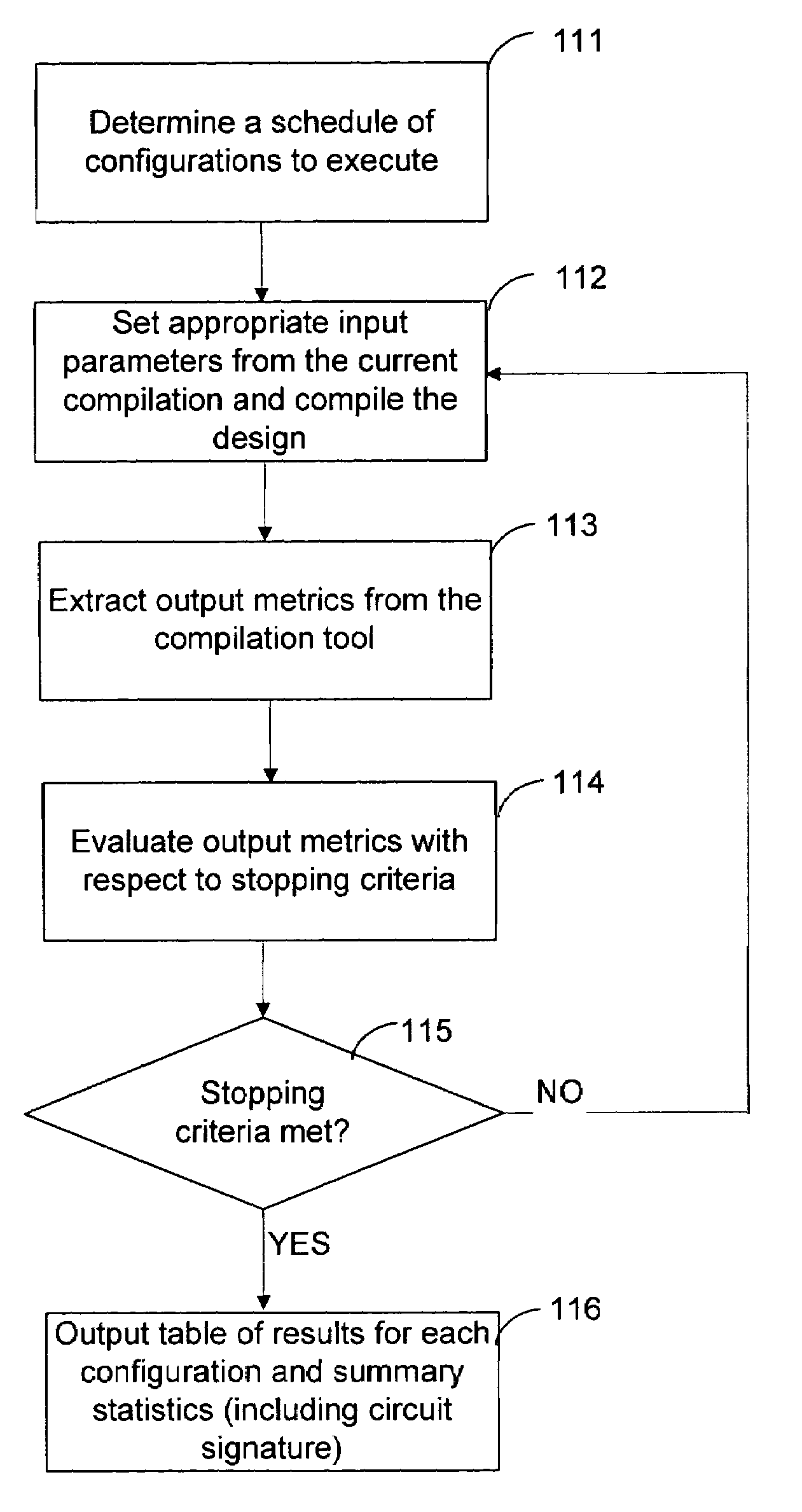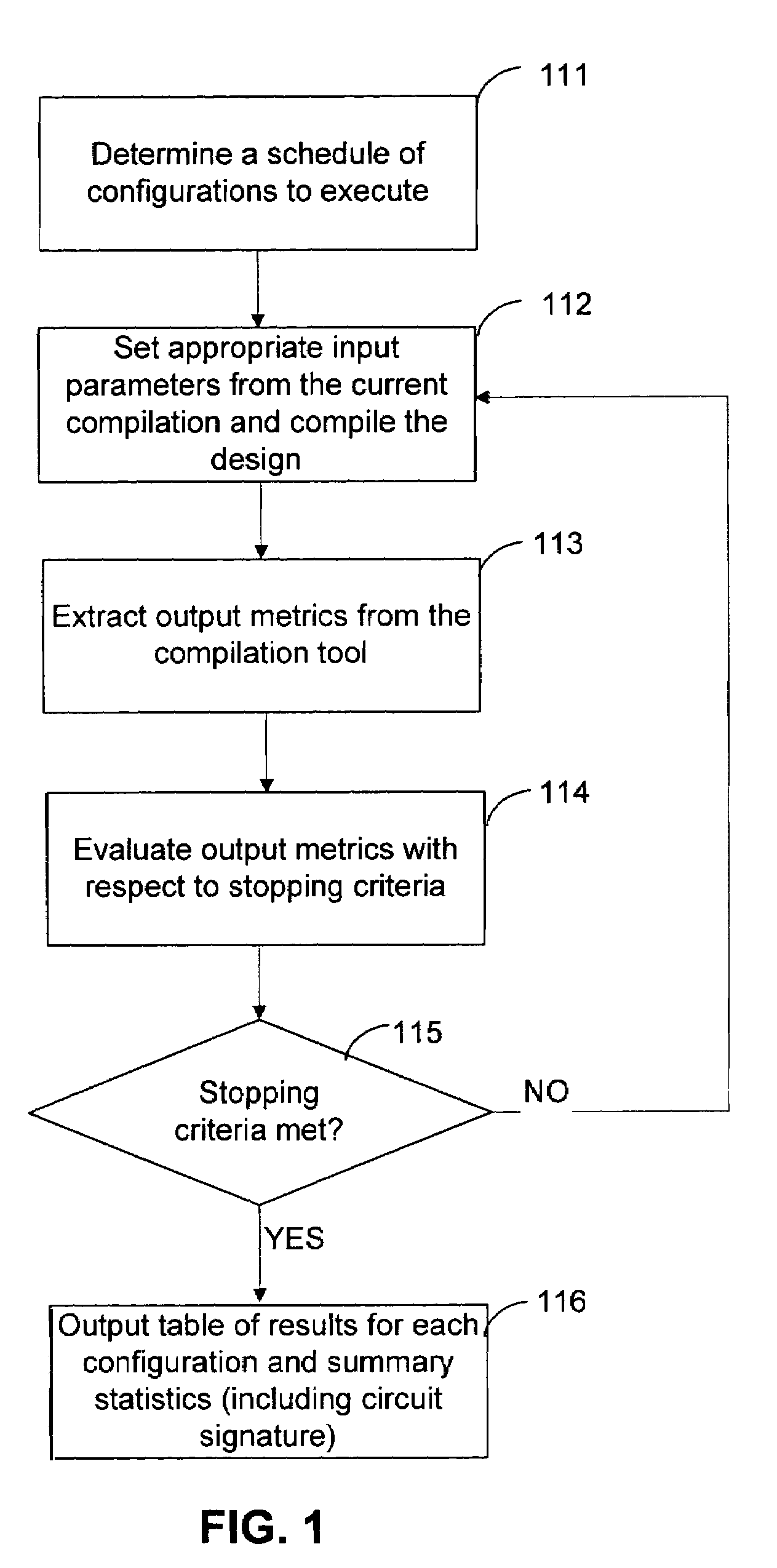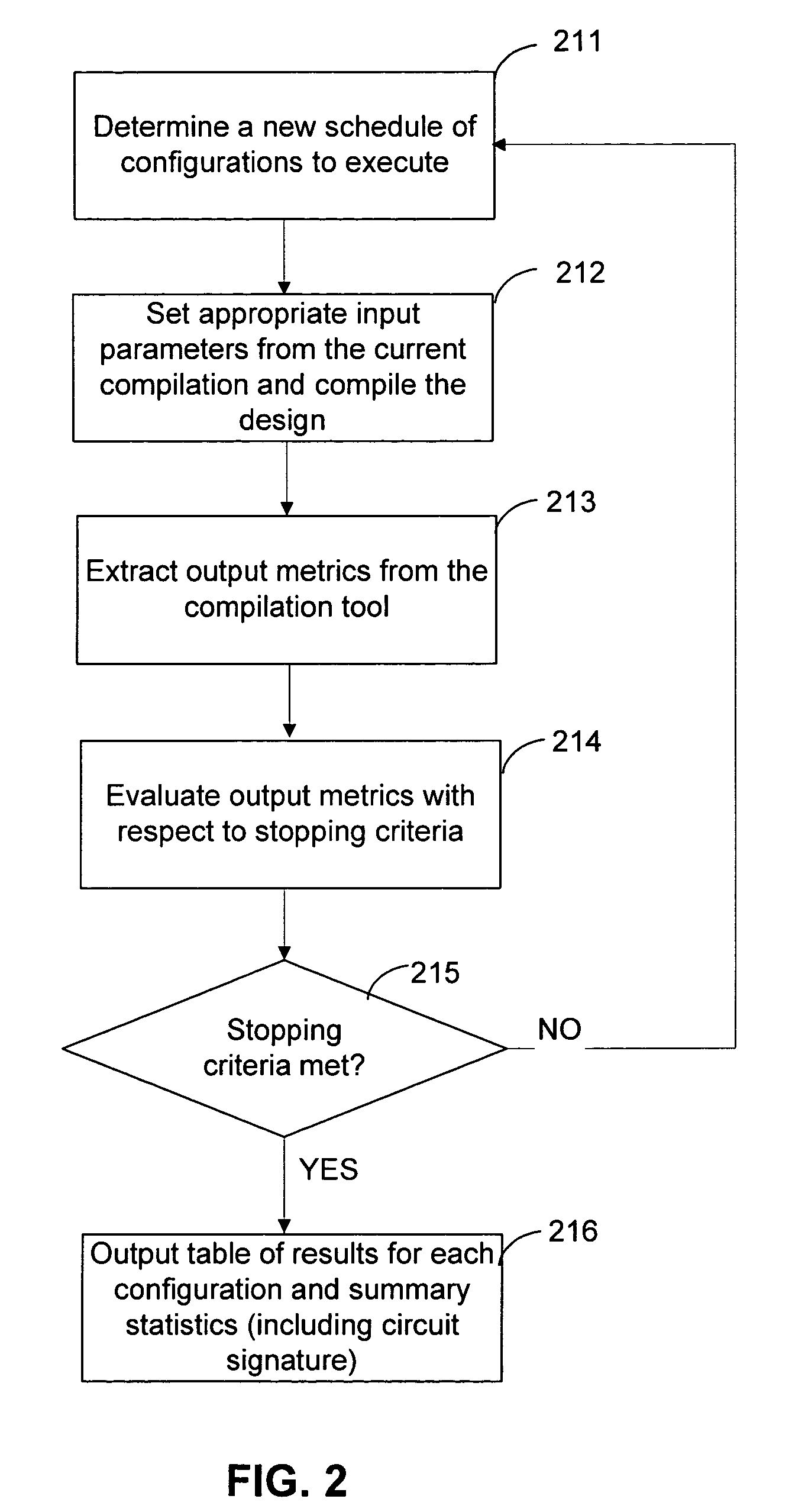Techniques for automated sweeping of parameters in computer-aided design to achieve optimum performance and resource usage
a technology of computer-aided design and parameter sweeping, applied in the direction of cad circuit design, program control, instruments, etc., to achieve the effect of increasing the speed of a design, and reducing the complexity of the design
- Summary
- Abstract
- Description
- Claims
- Application Information
AI Technical Summary
Benefits of technology
Problems solved by technology
Method used
Image
Examples
Embodiment Construction
[0024]The present invention includes techniques for optimizing the compilation of a circuit design on a programmable integrated circuit. According to the techniques of the present invention, a circuit design for an FPGA or ASIC circuit is automatically compiled several times with different values for multiple input parameters. The values of one or more output metrics, indicative of the operation of the resulting circuit implementation, are calculated for each compilation configuration.
[0025]The values of the output metric can be analyzed for subsets of the compilations that used the same value for at least one of the input parameters. The circuit design can be synthesized and placed using the input parameter values that provide an optimum value for the output metric.
[0026]According to the principles of the present invention, an output metric can be any circuit parameter that a user wishes to optimize or track. For example, the output metric can be the speed of the configured circuit...
PUM
 Login to View More
Login to View More Abstract
Description
Claims
Application Information
 Login to View More
Login to View More - R&D
- Intellectual Property
- Life Sciences
- Materials
- Tech Scout
- Unparalleled Data Quality
- Higher Quality Content
- 60% Fewer Hallucinations
Browse by: Latest US Patents, China's latest patents, Technical Efficacy Thesaurus, Application Domain, Technology Topic, Popular Technical Reports.
© 2025 PatSnap. All rights reserved.Legal|Privacy policy|Modern Slavery Act Transparency Statement|Sitemap|About US| Contact US: help@patsnap.com



